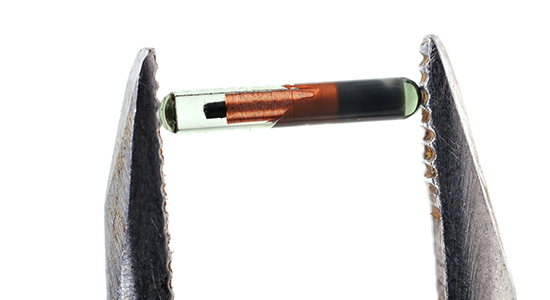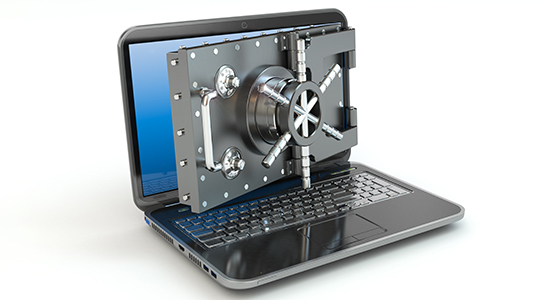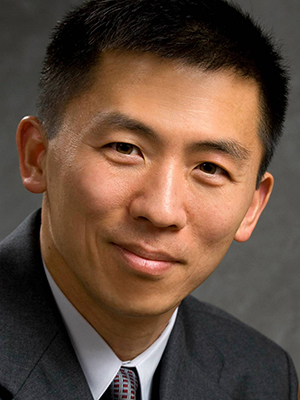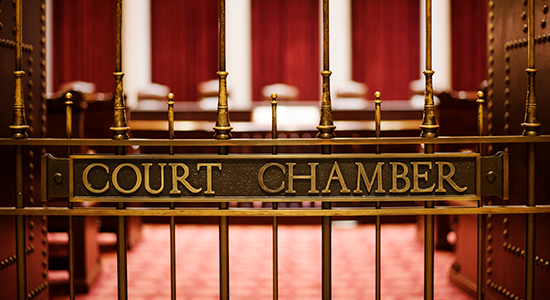Out There
Microchipped Employees: Wave of the Future?

Last month, media buzz surrounded a Wisconsin tech company, Three Square Market, that announced its employees could elect to have microchips, the size of a grain of rice, implanted into their skin. More than 40 employees have volunteered. Why?
Convenience and efficiency. The chip allows employees to access the building and other facilities, quickly log in to computers, or purchase snacks without a wallet.
Companies in Sweden and Belgium started chip implant programs as early as 2015. So is this the wave of the future or a privacy and security nightmare? It depends on your perspective.
“The reality is, it’s coming and it’s coming soon,” Three Square Market’s chief operating officer told ABC News. But Michael Zimmer, director of the Center for Information Policy Research at U.W.-Milwaukee, cautioned that chip implants fundamentally change a person’s ability to control personal information.
Attorney Jeff Bennion, writing for Above the Law, says microchips present a big legal risk, with little reward.
“Although phones will probably be replaced by some kind of wearable or augmented reality device, that year is not 2017, and that device is not the microchip,” Bennion wrote.
By the Numbers
121
– The number of a resolution, approved last month by the ABA House of Delegates, calling for judges to receive implicit bias training.
Specifically, Resolution 121 “urges all courts to develop plans of action to make de-biasing training an important part of both initial judicial training and continuing judicial education.”
It also urges local and state bar associations “to work with courts to offer de-biasing training to judicial officers free of cost and at the convenience of the courts.”
ABA resolutions are advisory but often serve as models for states to follow.
Tech Tip
Lock Your Cyber Doors and Windows

According to FBI Special Agent Byron Franz, who works in a cyber unit in Milwaukee, 9/10ths of cyber-attacks occur through “phishing” or “spear-phishing” email ploys.
Hackers will email contacts in a mass distribution (phishing) or target individuals or smaller groups, like law firms (spear-phishing). The email will contain a link or an attachment in the hope that someone will click on it.
“If it’s malignant and people click on these things, it unloads and unfolds, like an evil flower, a virus in your computer or your network, allowing someone to introduce ransomware that encrypts all of your data, or steal proprietary information.”
Apply strict scrutiny to all links and attachments, even ones that look legitimate and purport to be sent by someone you know, says Franz, who was a featured speaker at the State Bar of Wisconsin’s Health, Labor & Employment Law Institute in August.
Suspicious of a link or attachment? Franz recommends using a tool such as Virus Total, which will inspect it with antivirus scanners and URL/domain blacklisting services.
Thus, you can mitigate the risks by locking your cyber doors and windows.
Quotable
“Building a path to leadership for lawyers of all backgrounds, including Asian Americans, must be part of the unfinished work of the legal profession.”

– California Supreme Court Justice Goodwin Liu
Asian-Americans were excluded from the legal profession for much of the nation’s history, but are “the fastest growing minority group in the bar today,” notes Justice Liu in a July L.A. Times op ed. More than 50,000 Asian-American lawyers now work in the U.S., compared to 10,000 in 1990.
Yet Liu notes that Asian-American lawyers “have made limited progress in reaching the top ranks of the profession.”
For instance, only 2 percent of state judges and 3 percent of federal judges are Asian American, although Asian-Americans represent 6 percent of the U.S. population. On the ratio of partners to associates in law firms, they rank lowest.
Why? A new study published by Yale Law School and the National Asian Pacific American Bar Association, “A Portrait of Asian Americans in the Law,” provides some answers, including lack of access to mentors and contacts, or implicit discrimination.
“There is no single way to create a more inclusive legal profession,” Liu wrote. “But the first step is awareness. Asian Americans have often been neglected because of their small numbers, and monitoring progress is essential in law firms and other institutions where lawyers work.”
On the Radar
Looking for Free Federal District and Bankruptcy Court Decisions and Orders?

Free Law Project, a California-based nonprofit, has compiled a free searchable database containing every free written opinion and order available on PACER – the federal judiciary’s electronic records service – through 1960. The database holds approximately 3.4 million documents from nearly 1.5 million federal district and bankruptcy court cases.
“We believe that this collection of PACER documents will be an invaluable tool for legal scholars, lawyers, journalists, and the public,” Free Law Project wrote in a blog last month. “These documents are a critical part of America’s legal system, but until now there was no free way to access or analyze these documents in bulk.”
All the documents are available in the RECAP Archive of PACER documents, at www.courtlistener.com/recap.
Good Idea
Texas Improves Courthouse Security After Judge Targeted

Two years after a district judge was nearly assassinated, Texas has enacted the Judge Julie Kocurek Judicial and Courthouse Security Act of 2017. The act makes numerous changes to laws on courthouse security.
Namely, it requires court security certification for court security officers and presiding judges of every court to establish court security committees, establishes a training fund and a new mechanism for incident reporting, and allows judges to restrict the availability of personal information about them. It also authorizes law enforcement to provide personal security to a state judge, if needed.
The legislation could serve as a model for other states, including Wisconsin, to better protect judges and citizens in courthouses.
A 2016 Wisconsin Lawyer article, “Court Funding: Security at Risk,” highlights incidents detailing the inadequate security staffing in Wisconsin courthouses.
Source: Bill Rafferty, Gavel to Gavel
